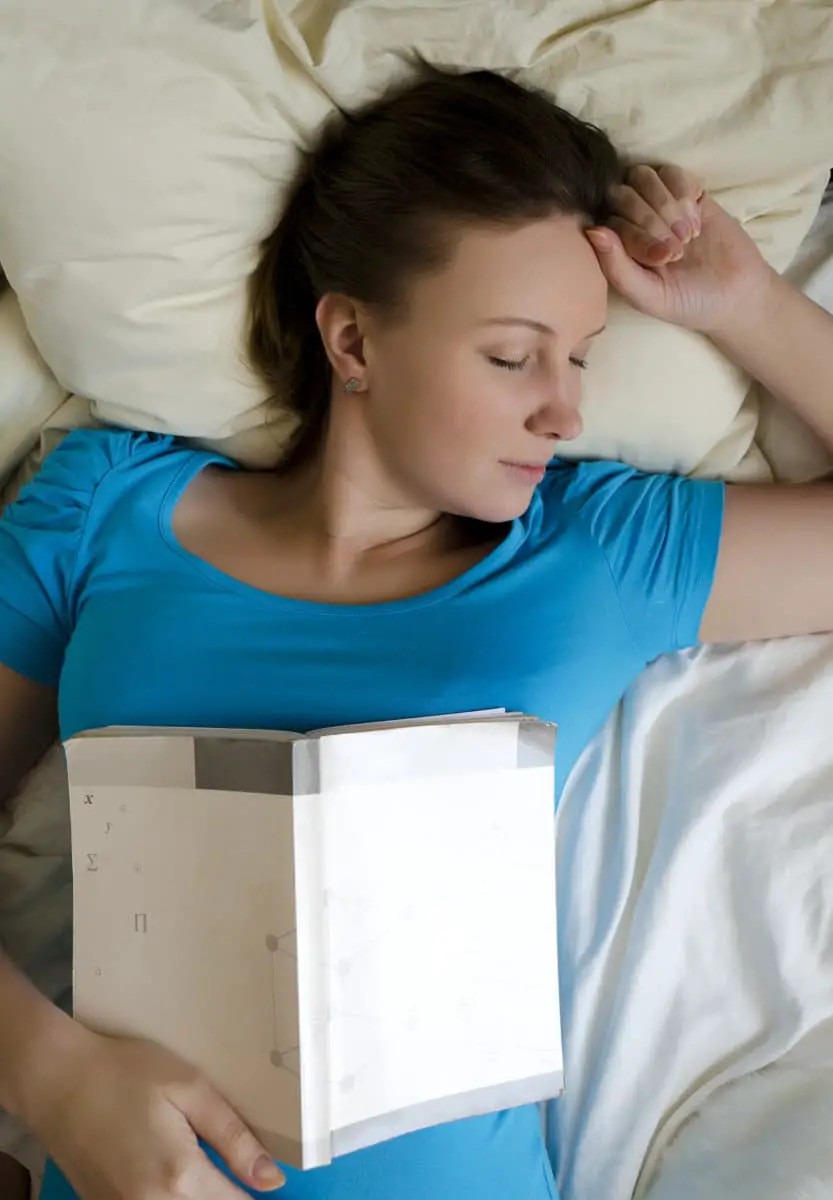I can never remember whether naps are supposed to be good for you or bad for you. As a student, this can be important to learn so you know if you should take naps when studying or before exams.
Naps are good for studying because they can make students feel more alert, relaxed, refreshed, and focused, making studying easier. Naps after studying also help students process and remember the information they learned.
A study found that people that napped after learning new information remembered the information better a week later than those who kept studying or only took a break (but did not nap).
found that people that napped after learning new information remembered the information better a week later than those who kept studying or only took a break (but did not nap).
Let’s look at who should and shouldn’t take naps, the benefits of naps, when and for how long you should nap, if you should nap before or after studying, if you should nap before exams, and tips for taking an effective nap.
Click hereto check out the most popular products for college students.
Should college students take naps?
College students often have busy schedules and don’t get enough sleep—this can lead to students feeling tired and less productive. Naps can help them feel more refreshed and focused. Naps also help students remember information. All of this can improve academic performance.
Caffeine is often used to continue to study, but while it can make you more alert, it doesn’t help you remember information, and it comes with other side effects like making it hard to go to sleep or causing jitteriness or anxiety. Naps offer the same benefits and more without side effects.
Check out all the benefits of Prime Student. Click here
to sign up for Prime Student.
Who should not take naps?
People should not take naps if they deal with insomnia and have trouble falling asleep or staying asleep at night, if it will take them a long time to fall asleep (this will be too much waster time), or if they experience sleep inertia from naps and wake up groggy or disoriented.
from naps and wake up groggy or disoriented.
People say you can avoid sleep inertia if you take naps less than 30 minutes long, but some people will still experience sleep inertia.
I am one of those people that does not benefit from naps. It takes me too long to fall asleep and then too long to get moving again once I wake up.
Try taking a nap on a day when you don’t have anything pressing to do upon waking up and see how you feel. You can also experiment with different lengths of naps.
If naps are not a good option to make you more alert and focused, try getting some fresh air or exercising.
Benefits of napping for college students
Napping has many benefits for college students that can last up to several hours after a nap. These include:
- People are more productive because naps increase alertness and focus.
- Improved processing and remembering information since committing information to memory happens during sleep
- Improved cognitive function, such as problem-solving skills and reasoning
- Reduced stress since napping decreases cortisol
 which is a stress hormone, and increases norepinephrine
which is a stress hormone, and increases norepinephrine which lowers stress
which lowers stress - Improved mood by reducing fatigue, irritability, frustration, and impulsiveness
- People are able to be more positive and motivated.
- More energy
- Improved motor performance and reaction times
- Students are more creative after rest because they can more easily think of new ideas.
All of these benefits can help students make connections and do better studying and on exams.
Why do college students nap so much?
If college students seem to nap a lot, this could be because they are suffering from sleep deprivation. It could be caused by stress, hangovers, irregular sleep schedules, or poor quality sleep at night from noise or light.
College students often stay up late at night but also have to get up early in the morning for classes. This sleep schedule leads to them being sleep-deprived and needing naps to function.
Another cause may be that long study sessions can cause mental fatigue, so students nap.
Finally, health issues, such as depression, fatigue, or sleep disorders, could cause excessive napping.
What is the best nap time for college students?
In general, it is best to nap in the early afternoon. However, the best nap time for college students varies depending on when the student wakes up and goes to sleep. It is important that students don’t nap too close to bedtime, or they may have trouble falling asleep at night.
Many people find 1-3 pm to be a good nap time.
Should I nap before or after studying?
Many people ask if it is better to study before or after a nap. The truth is that there are benefits of napping before, during, or after studying, depending on your situation and desired results:
- Before studying: A nap before studying can help you study more effectively by increasing your focus and alertness.
- During studying: Long study sessions can be tiring, and learning and remembering information becomes harder. You can nap after 2-4 hours of studying and then wake up and study more.
- After studying: Napping after studying can help you process and remember the information you learned.
Whenever you nap, make sure that it is not too close to bedtime because that can make it hard to fall asleep or stay asleep, which could result in sleep deprivation (which would decrease academic performance).
How long should I nap when studying?
In general, naps should be between 10-30 minutes. Naps longer than 30 minutes can cause more sleep inertia (grogginess or disorientation upon waking). Popular power naps are typically between 10-20 minutes. However, common advice on nap times varies widely between 10-90 minutes.
You can experiment with different lengths to find a nap time that works best for you. Make sure that when you go to sleep for a nap, you have planned how long you will sleep and set an alarm so that you do not oversleep.
Should I take a power nap before an exam?
Naps can help students feel more focused and remember information better for an exam.
Students should take a power nap before an exam if they know they wake up from naps feeling more alert and refreshed. If they wake up feeling groggy or disoriented, they should not nap before an exam. Students should not experiment with seeing how they feel after a nap on the day of an exam.
If you are going to nap before an exam, allow yourself enough time to nap, and wake up and get focused before your exam. Make sure that you set an alarm!
Naps before exams are not for everyone. You can also try other techniques to prepare before an exam, such as deep breathing or stretching.
Tips for taking an effective nap
Let’s look at the 4 most important tips for effective napping:
- Don’t nap too close to bedtime. This can cause you to have trouble falling asleep or staying asleep. Aim for more than 3 hours before bed.
- Create a plan to allow yourself time to fall asleep, nap, and wake up and continue your day.
- Set an alarm to avoid oversleeping.
- Get up as soon as your alarm rings and get exposed to light right when you wake up.
When it comes to whether you should nap or not, there is no best answer—listen to your body and find what works for you.
Find out more sleep tips for college students and whether it is better to sleep or study before an exam
and whether it is better to sleep or study before an exam .
.



Good advice! Old people can’t help but nap. It happens whether they want to or not. Lol